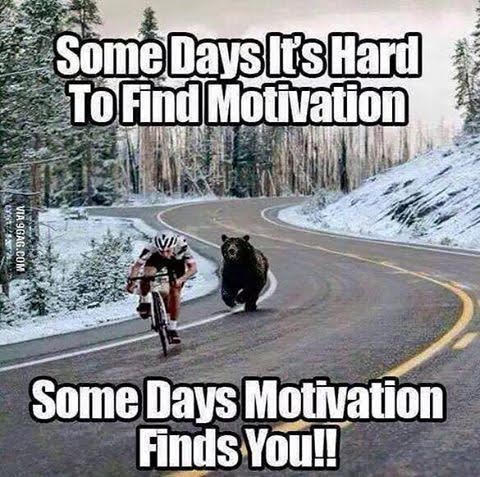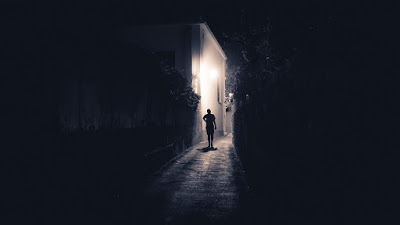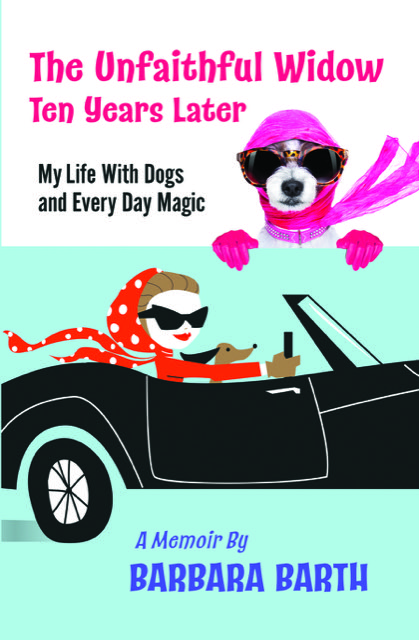I know I’ve been talking about this a lot lately, but in the….book….I’ve been writing, I’ve just realized that I know exactly who I’m writing for. (I know, I am writing for me, but in addition to that…) I know who my audience is, I know my specific genre. It’s not like I didn’t know before, because I knew it was Fantasy, but knowing specifically felt really good. I’m not ready to say yet, because I want to be done before I say anything for sure, but I decided to ask the writing world around me who their audience is, and if they know their audience right off the bat.
One thing I thought was amazing was how people interpreted this question and their answers are even better…
My Audience is…Myself
![[ C ] Ray Caesar - Oh! Sweet Vanity (2004)](https://farm6.staticflickr.com/5013/5531945702_ccfc6b9aab.jpg)
@MarkEWest on Twitter said, “Surely your audience is you – write for yourself, rathre than try to push your story into a certain direction?”
yosemighty_sam (on reddit.com) said, “Unless you are an exceedingly strange person, there are millions of people like you, and millions more who would be fascinated to see things from a new perspective. Writing for yourself means writing for them too.”
Thomas Wilson (who responded me on Writer’s Digest Community Forums) agreed with this sentiment, “When I first started with my first book and part way through my second book, I realized that my audience was myself…I realized that if I wrote the book that gave me goose bumps and got me excited everytime I went back through it re-writing and editing, that it would appeal to everybody who likes the same kinds of books I like!
“We readers tend to gravitate towards certain genres and authors whose work we enjoy. It became much easier all around when I realized I just need to write the best book I can for myself, putting in all the elements I enjoy in a good book and it will translate over to those who read the same stuff I enjoy.
“So, in my case, the audience is myself! If every writer concentrates on writing their unique special book, something that totally flips their triggers, it will excite others who enjoy the same things that they do. Your passion, love, and excitement of the story will shine through.”
And Suzanne Alexander from the same forum agreed, “I read once, write a good story and your audience will come.”
(Hang on I need an “If You Build It, They Will Come” moment…)
Sorry, moving on…Suzanne continued to say, “Yes, you need to know what genre you’re pitching, which genre to classify your story, but I personally allow the story to flow and worry about the audience later.”
John Petros with the Writer’s Digest Community forums responded to me with a very similar sentiment saying, “My take on this is, you certainly need to write for yourself first otherwise you won’t keep the fire and passion in the writing which is very important no matter who you may think your readers will be. If you lose interest in what your writing then the project probably won’t be completed.
“After you complete your novel or short story, set it aside for a few weeks. During the writing process you get too close to the characters and that makes it very hard to think (structure wise). Picking it back up again, you must be able to refine and embellish scenes, characters, and moments, according to whom you think this story will appeal to, and or, just to yourself. This is a first rewrite, there can/will be several. Think of sculpturing a block of wood and getting the expression just right. This is a process, and it can be very fun, however deadlines are not fun.” (he says more, but pause here for a second…)
I have to say that I tend to agree with the sentiment that your audience is yourself first and foremost. If you are bored with the story, you’re readers will be too. You are with this story for a long period of time, so you are tied up in who you are writing for…
So, John went on to say this, “I’ve read somewhere that many agents do have a gauge for style.
“Specifically, some agents like what’s called ‘hard sci-fi’ which means an in depth detail of how the mechanical or cyber machines function.
“Other agents prefer ‘soft sci-fi’ which means more concentration on the space opera sweep, similar to Star Wars or Star Trek, which equals less nuts and bolts machine detail. I try to write in a way that includes both styles.
“They also gauge the level of detail in a sex scene. Some may want it to be very revealing, nearing pornographic attention and others focus on the slight details, the build and tension before a kiss or the fantasy of the kiss. And some prefer both of the above.
“Only the books that said agent(s) have published will reveal which style they prefer.
“The problem as you can see is that if you write for that agent, and then that agent suddenly moves to a different publishing house, and that new house is a different genre…” (pause again)
I didn’t really consider any particular agent might be important, but he does have a point. You do have to market your book and it becomes important to know how to sell it. But then again, he does say, “So, I believe its best to write for yourself and maybe do a little research on your type of novel. Concentrate on your characters and structure first. That is more than enough work just to get to the end of the book. Then enjoy the rewriting process, that’s where the art starts.”
And when you are writing for you, you need readers who just “get” you, and that is how Virginia Llorca felt, saying, “I know my audience is the people who “get” what I am saying and how I say it. I know I narrow the market that way, but love the feedback. I know my work does not appeal to the general public.”
Usually, as writers, we do know who we will appeal to based on whether we are writing a mystery, a romance, literary fiction, poetry, children’s book, etc…so that knowledge, will make a difference in how we write. Not knowing the genre though can cause some difficulty, and that’s when I got these responses…
My Audience is…My Genre Readers
Here’s where my recent realization comes in…I knew I was writing fantasy (you can’t have people with magical powers without it being fantasy, really), but then it became important what the specifics were…and a lot of people tend to agree with this.
Massawyrm (at Reddit.com) said, “The biggest mistake amateur writers make is in assuming that an audience will come to them. It doesn’t work that way. A writer must go to an audience. Every decision a writer makes will be based upon which audience he chooses, from word choice to story complexity to which emotional touchstones he uses. He needs to know what his audience finds shocking, how much they’ve read before, what they cherish and what they loathe.
“Some people argue that first and foremost one must write for themselves. This is bullshit. Writing meant to be shared cannot be for yourself, it must be for the audience. Otherwise, you are blindly casting words out into a void and hoping something sticks. That’s not writing, that’s typing.
“The hobbyist writes for himself, a professional thinks about his audience. The minute you commit something to paper and share it, you are involving an audience; to say that you think of only yourself and not them is the very definition of self-centered.”
Will Weisser (at Reddit.com) had similar feelings about writing for a genre and said, “I have certain preferences as to the kinds of books I like to read, so I pretty much just stick to writing things that are similar to those. I’m not really interested in the idea of trying to conform to the expectations of specific demographics. I try to stay focused on truth: being true to myself and expressing truth in my writing. I’d like to think that if I stick to that, then things will work out for me. Of course, that doesn’t mean I give myself license to be self-indulgent. There’s no demographic I’m aware of that is interested in reading crap ;).”
Adam Boenig (at Google Plus) said, “[I know my audience because], I interact with them on a regular basis. My audience seems to be the crazy ones.”
Ardith Goodwin (at Google Plus) agreed that knowing your genre audience is important, “I think, unless you are free writing or simply writing for yourself, you must have prior knowledge of audience to help shape the context of what you write. You wouldn’t write a romantic narrative if your audience is a group of tech educators needing to read tips on teaching keyboard skills nor would you write a chapter book for 5 year olds who are just learning to read. Audience awareness is vital to successful writing.”
Lane Diamond (at Google Plus) also said, “I know who my audience is primarily by reading extensively within my genre. I write thrillers, and I’ve read over 500 thrillers, so I have a natural feel for what thriller readers like. Takes a long time.”
Marie Godley revealed that knowing your audience can also help with the editing process, and said, “I think you have to have an idea of who you are writing for to get the style, level judged right. I am beginning to write for teenagers, now that my daughter is one, so after reading many other novels in that age range I make her read each chapter as I’ve finished it to make sure she understands it and agrees with it.”
And it seems to become more and more important to understand your audience, especially if you are struggling with what genre you fit in. A lot of people seemed to agree with this.
A few other people seemed to feel the same way who responded to me. K.A. Libby said, “It’s rather like the question of ‘to be or not to be’. It has been a struggle for me to identify my audience–in other words, label my novel as a specific genre–as my writing crosses genre lines. This has been a background process for me throughout my writing. A necessary evil, shall we say, as it seems to be a requirement for submittals and marketing.
“I’ve finally decided my current novel is a mystery with suspenseful and romantic undertones. It seems the length of the novel needs to be consistent with its genre. for example, I have read that a mystery is expected to be 60,000-65,000, whereas a suspense novel would be 10,000-15,000 words longer. Details. Details. Details can sometimes be so distracting from the art of writing!”
And Kossiwa Logan felt the same way, saying, “Knowing who your audience is something that I’m just learning. Your audiences changes with each piece that you write. But I don’t think it should factor in until you are ready to promote and publish the piece you’ve written and rewritten. Then you need to know who your audience is and it’s easier to figure out who your audience is. Some writers feel that their audience is similar to them because you are writing for yourself. I haven’t taken the promotion step yet. Right now I’m just writing and rewriting and getting ready to submit on a continuous basis.”
And I realized that writing for your audience is important no matter if your genre is fiction or non-fiction…because blogger Sarah Mazzone said, “I blog at Made in USA Challenge. I value all kinds of feedback from my readers through their comments and e-mails as well as FB and Twitter interactions. My purpose is to create a dialogue about how to be a conscious consumer, centered on the idea of buying American made. I count on my audience to let me know what they would like to learn about, how their consumer habits are evolving, and how they feel about the ideas I promote. I love when readers share their ideas and finds. This gives me great insight into who my follower really are, what is important to them and how to better craft content aimed at them.”
As my mind continues to spin at the debate that I seemed to start, now it’s your turn…do you know who your audience is? Who do you write for? For yourself or for your genre?
Thank you to everyone who responded to my question. Make sure to follow me on Twitter, Facebook, and Google Plus where you can answer my question and I will feature you in my next post! Make sure you check out all of these awesome writers and check out their websites (and Twitter pages!).






Nicole, nice post and I LOVE that little girl picture!
Great question with lots of opinions. I think I'm somewhere in the middle – write for yourself, but keep your audience in mind while you do. I used to just write (I guess that's how we all start) but now I actually think about the story I want to tell, where it fits in, and what parts floating around my mind have to be changed to fit into the audience I settle on. That's not saying I get it right off the bat (I struggle with age-appropriate voice, for example), but at least my plot structure is prepared for it.
Good information Nicole! I do write for myself with a slant towards the reading audience.
Great post, Nicole! Great advice on knowing one's audience. It sure does help. Like the pic of the girl, too! I do write for myself, but I also do have an audience in mind, and it has been trickier for me because I'm trying to address two different cultures, too. Challenging, but not a big issue since in the end we have commonalities. I do write both fiction and non-fiction, though I've taken off mainly on the non-fiction first. Thanks for your interesting post! Good luck, Nicole!
It's true, I write for myself first and foremost. Who doesn't really? But the revisions are for my readers, my audience. I thought I knew exactly who my audience was, but I was surprised when someone outside that audience truly enjoyed my novel. So who knows?
I really liked your comment about how professional it is to think of your audience.
Wow, that is a very thorough & informative post. I am trying to organise myself to write a book & this has given me so much food for thought.
Thank you
x
@Donna Martin – Isn't that picture just awesome!! 🙂 Thank you for reading!
@Carrie K Sorenen – I'm the same way, usually I would say I just write for me, but lately I have gotten into the habit of considering my reader and I think that will help me in the long run to write a better story.
@JL Murphey – Thank you for reading! I'm the same way – I don't consider the audience too heavily at first but as the story goes along I get more focused on that!
@Lena Winfrey Seder – Wow – good for you for knowing how to address two different cultures like that! That would be VERY tough to do! Thank you for reading!!
@Nancy Thompson – Very true, first draft I think you absolutely have to write for yourself, just to get the story out. It's in the revisions that you have to consider everyone else. I know what you mean about your audience changing – the same has happened to me and that can change the entire story!
@The Desert Rocks – Thank you!! 🙂
@Bailey Ana – Good luck with your book! I hope this helps!